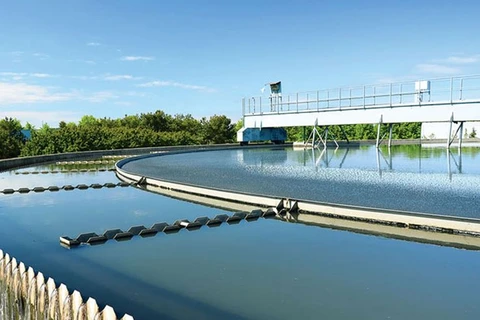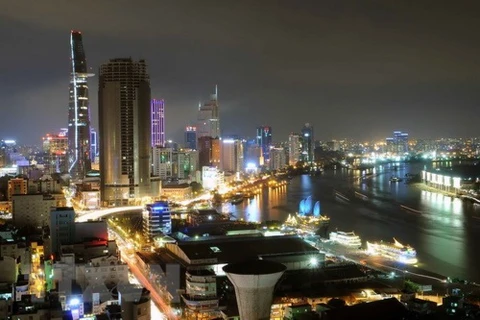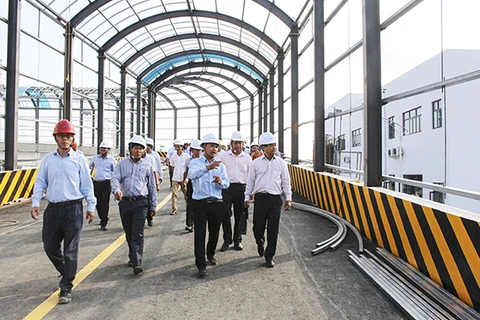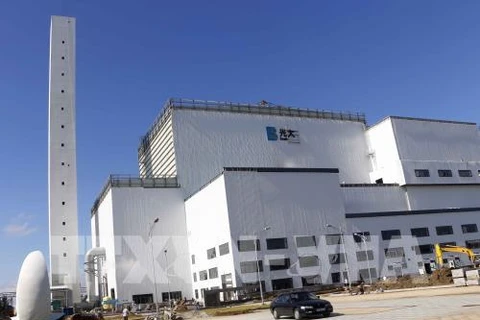HCM City (VNA) – Mitsubishi (MHI) of Japan wants to work with Ho Chi Minh City in building plants to turn waste into energy, Executive Vice President at Mitsubishi Heavy Industries, Ltd. Ken Kawai said.
At the meeting with Le Thanh Liem, Standing Vice Chairman of the Ho Chi Minh City People’s Committee in the city on November 7, Ken Kawai said his group wants to cooperate with the Vietnamese business hub in dealing with challenges stemming from its development process.
He said MHI owns multi-sectoral cutting-edge technologies and 40-year experience in treating waste into energy, and it is willing to involve in waste treatment in the city and transfer the related technology in the form of public private partnership.
At the present, MHI runs 314 waste treatment plants around the world, turning industrial, household, and solid waste into energy, Ken Kawai said, adding that the group will provide waster-to-energy technology that is optimal and suitable for each locality’s conditions.
The group wishes to expand its cooperative activities in Vietnam beyond production, technology transfer, and infrastructure development to improving capabilities and skills of Vietnamese workers so to enable them to master novel technologies in the future, he said.
Liem said the working visit by the MHI’s executives shows the group’s willingness and interests in investments in the city’s development efforts.
HCM City is willing to cooperate with MHI in not only urban infrastructure development but also waste treatment – the issue that is challenging the city during its urban development process, he said.
He suggested MHI and municipal agencies soon discuss cooperation contents in detail in the field and work out realistic projects with high efficiency, especially when they plan to use the public-private partnership model for the projects.-VNA
At the meeting with Le Thanh Liem, Standing Vice Chairman of the Ho Chi Minh City People’s Committee in the city on November 7, Ken Kawai said his group wants to cooperate with the Vietnamese business hub in dealing with challenges stemming from its development process.
He said MHI owns multi-sectoral cutting-edge technologies and 40-year experience in treating waste into energy, and it is willing to involve in waste treatment in the city and transfer the related technology in the form of public private partnership.
At the present, MHI runs 314 waste treatment plants around the world, turning industrial, household, and solid waste into energy, Ken Kawai said, adding that the group will provide waster-to-energy technology that is optimal and suitable for each locality’s conditions.
The group wishes to expand its cooperative activities in Vietnam beyond production, technology transfer, and infrastructure development to improving capabilities and skills of Vietnamese workers so to enable them to master novel technologies in the future, he said.
Liem said the working visit by the MHI’s executives shows the group’s willingness and interests in investments in the city’s development efforts.
HCM City is willing to cooperate with MHI in not only urban infrastructure development but also waste treatment – the issue that is challenging the city during its urban development process, he said.
He suggested MHI and municipal agencies soon discuss cooperation contents in detail in the field and work out realistic projects with high efficiency, especially when they plan to use the public-private partnership model for the projects.-VNA
VNA

























